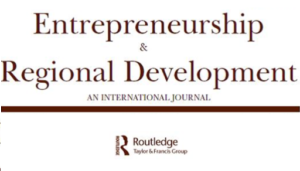Episode 145 – Clara Douaihy – Structure and dynamics of a precarious entrepreneurial sub-ecosystem in a developed country
Entrepreneurial ecosystem research increasingly recognizes the importance of sub-ecosystems, yet their dynamics in contexts of precarity remain underexplored. This article introduces the concept of precarious entrepreneurial sub-ecosystems and examines how entrepreneurship unfolds under conditions of resource scarcity and social vulnerability in Montpellier, France. By mobilizing a complex adaptive systems perspective, we develop a multilevel model…
Read More


